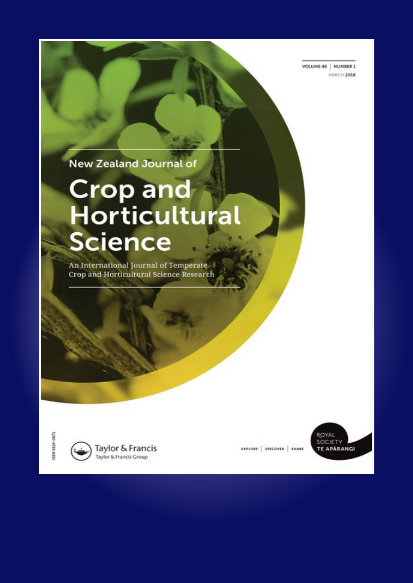太平洋区域的植物保健诊所和区域大学的作用
IF 1.5
4区 农林科学
Q3 AGRONOMY
New Zealand Journal of Crop and Horticultural Science
Pub Date : 2023-11-13
DOI:10.1080/01140671.2023.2278789
引用次数: 0
摘要
摘要在气候变化严峻、粮食安全需求日益迫切的今天,植物保护问题日益突出。植物健康诊所(PHCs)是提高推广服务能力的有效途径,通过提供个性化建议,帮助农民管理植物问题。它们还被认为是建设该地区植物卫生系统的一个重要因素,与生物安全和研究有联系。根据一种医学模式,咨询由经过“植物健康医生”培训的推广官员在农民可以使用的诊所提供。有迹象表明,在太平洋地区,农民非常支持初级保健方法。本文对初级保健中心的背景和需求以及植物保健医生的培训进行了探讨。然后我们讨论了该地区三所大学的重要作用——斐济国立大学(FNU)、所罗门群岛国立大学(SINU)和巴布亚新几内亚的戈罗卡大学(UoG),这三所大学现在为农业及其他专业的学生提供初级教育,以便在捐赠资金停止后维持该项目。总的来说,包括博士学位的经历为学生提供了真实的学习,并为调查和支持该计划提供了广泛的研究机会。关键词:太平洋植物健康临床研究疾病防治大学农民披露声明作者未报告潜在利益冲突。本工作得到了澳大利亚国际农业研究中心(ACIAR)项目[HORT/2016/185]的支持:应对太平洋岛屿园艺中新出现的病虫害威胁。本文章由计算机程序翻译,如有差异,请以英文原文为准。
Plant health clinics in the Pacific region and the role of regional universities
ABSTRACTPlant protection is increasingly problematic in a climate-challenged world where the need for food security is increasingly urgent. Plant Health Clinics (PHCs) are an effective way of improving the capability of extension services to assist farmers to manage plant problems, by delivering personalised advice. They are also recognised as an important element in the building of the region’s plant health system, with links to biosecurity and research. Based on a medical model, the advice is provided by extension officers trained as ‘plant health doctors’, at a clinic accessible to farmers. Indications are that in the Pacific, farmers are very supportive of the PHC approach. In this paper, we consider the background and need for PHCs and the training of plant health doctors. We then discuss the important role of three of the region’s universities – Fiji National University (FNU), Solomon Islands National University (SINU), and the University of Goroka (UoG) in PNG which now provide PHC education to students of agriculture and beyond to sustain the programme once donor funding ceases. Overall, the experience of including PHCs offers authentic learning for students, as well as opening a wide range of research opportunities to investigate and support the programme.KEYWORDS: Pacificplant health clinicspestsdiseasestraininguniversitiesfarmers Disclosure statementNo potential conflict of interest was reported by the author(s).Additional informationFundingThis work was supported by the Australian Centre for International Agricultural Research (ACIAR) project [HORT/2016/185]: responding to emerging pest and disease threats to horticulture in the Pacific Islands.
求助全文
通过发布文献求助,成功后即可免费获取论文全文。
去求助
来源期刊
CiteScore
2.90
自引率
7.70%
发文量
54
审稿时长
>36 weeks
期刊介绍:
Scope of submissions: The New Zealand Journal of Crop and Horticultural Science publishes original research papers, review papers, short communications, book reviews, letters, and forum articles. We welcome submissions on biotechnology, entomology, plant nutrition, breeding and pathology, postharvest physiology, soil science, viticulture, biosecurity, new crop and horticultural products, and descriptions of new cultivar releases. The journal welcomes work on tree and field crops, and particularly encourages contributions on kiwifruit, apples and wine grapes.

 求助内容:
求助内容: 应助结果提醒方式:
应助结果提醒方式:


